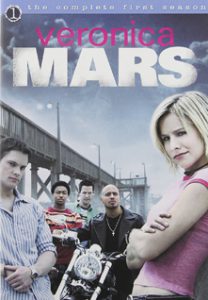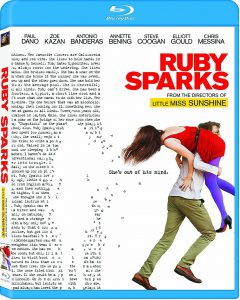With the premise of a writer whose fictional dream girl magically comes to life, “Ruby Sparks” (now on DVD) seemed like a movie I would love. As it turns out, I merely liked it. Certainly, there is a lot of obvious fun to be had with the scenes where Calvin (Paul Dano) discovers Ruby (Zoe Kazan) lounging around his apartment, comfortably engaged in what she thinks is a steady relationship. Of course, he goes through the usual movie steps of trying to find out if he’s crazy, such as inviting over his brother, Harry (Chris Messina from “The Mindy Project”), to confirm Ruby’s existence.
Although one might think “Ruby Sparks” is a guy’s movie, it’s actually written by Kazan, so there isn’t really a gender-based gaze here. Rather, it’s about the universal notion that we desperately want another person to be who we see in our mind’s eye and not in messy reality. Even though Calvin creates Ruby, she is a real person, not a robot, and therefore they end up with the problems you’d find in any relationship. (Of course, the fantasy element adds a tasty wrinkle, because we know a stunner of a scene is coming when Calvin tells Ruby where she came from.)
Initially, Calvin comes off a bit pretentious. I don’t sympathize too much with movie characters who struck it rich with a huge hit book when they were young and then have to deal with their career spiraling apart. Calvin just can’t come up with that next bestseller. Well, boo-freakin-hoo, you know? Furthermore, Calvin uses a typewriter, and since he can’t be a day over 30, it makes no sense how he ever got in the habit of preferring outdated technology. I assume the filmmakers just wanted the visceral impact of seeing the letters slam into the paper, thus spelling out the next element of Ruby’s character.
I think “Ruby Sparks” — which calls to mind the Mel Gibson movie “What Women Want” and the Season 6 “X-Files” episode where a writer influences Scully — could’ve used this fun premise to dig a little deeper into the balancing act of relationships. On one hand, we want the other person to be a certain way. But on the other hand, we want them to be a real human being, not a machine. Since the two notions are incompatible, problems inevitably result. “Ruby Sparks” only scratches the surface of these ideas, and although it has a sweet-natured indie vibe in a lot of ways, it gets stuck a bit in the light comedic groove rather than digging into meatier material.
I’ll also note that Dano and Kazan, although both appealing enough, don’t provide sparks with their chemistry (even though — or perhaps because — they are a real-life couple). It didn’t take me out of the movie, but I just wasn’t as engaged here as with, for example, the connection between Zach Braff and Natalie Portman in “Garden State,” or even the not-quite-connection of Zoey Deschanel and Joseph Gordon-Levitt in “(500) Days of Summer.” There’s not as much happiness or pain on screen as there should’ve been.

Still, “Ruby Sparks” held my attention, and it does deliver a sweet bow-tie of an ending. It’s not a must-see, but it’s a respectable rental choice, and Kazan’s writing career is worth keeping an eye on.

